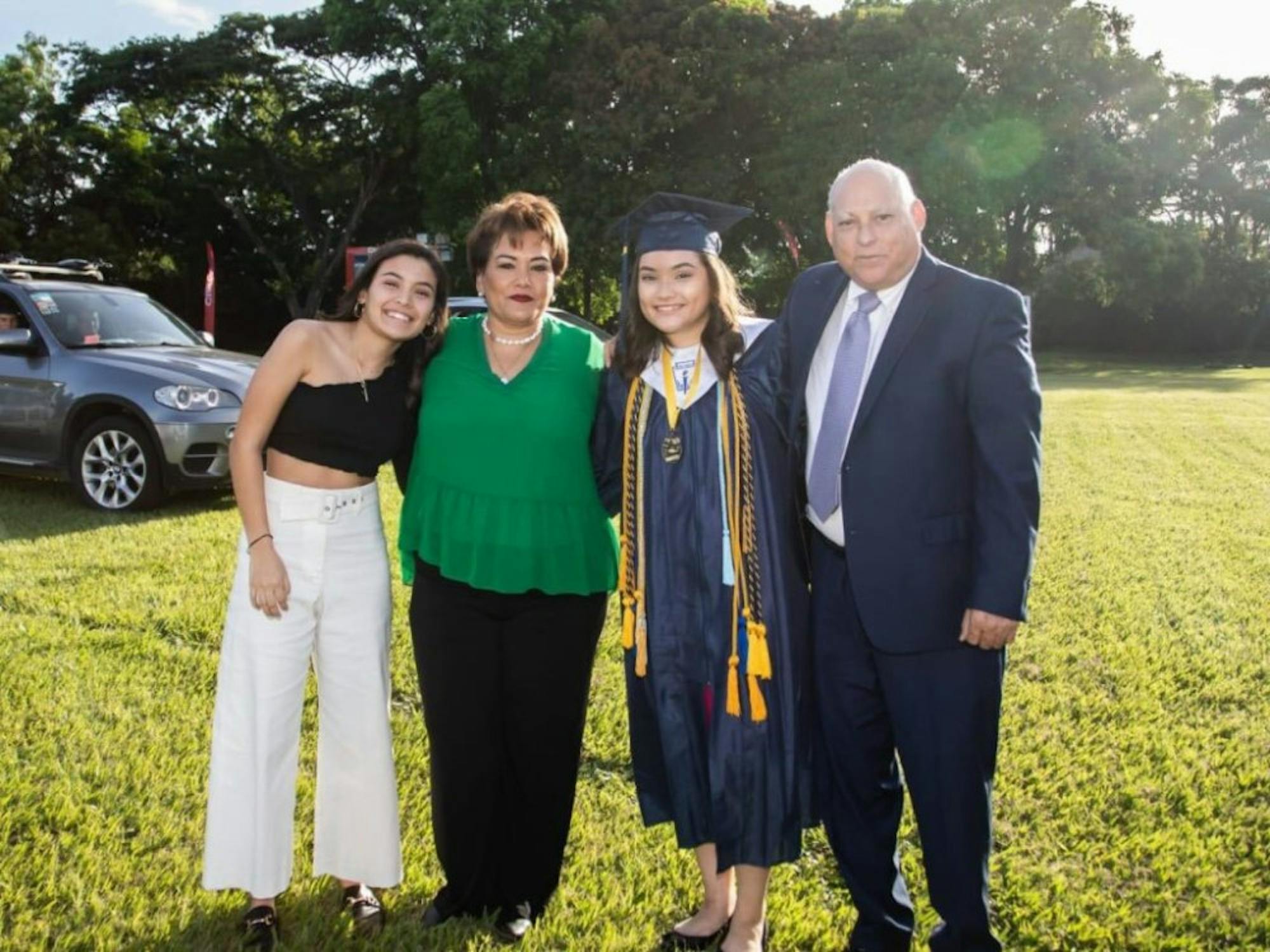
For most of my life, identity was a concrete, one-dimensional concept, a mere list of facts about myself. My name is Sara. I am a sophomore. I am Hispanic. If someone asks who I am, this is likely how I would respond because it's easier than explaining the truth: I don't know who I am or if I ever will.
When I came to terms with not knowing who I was, I started understanding myself and others better. The most effective way of understanding others — or trying to do so — is to realize it is impossible to be categorized and defined by one group or label. Even the most common labels can contradict each other, such as being labeled lazy and driven simultaneously.
During my senior year of high school, it was my duty to tell colleges who I was and why I would be an excellent fit for that school. I realized I couldn't put into words what I didn't know myself until that moment. For a moment, I forgot about why I was pursuing debate, unsuccessfully practicing sports and learning how to code at 16. Staring at tens of blank documents, I made little progress on my application essays. In an attempt to reassure me, my college counselor said I had to figure out who I was to create a convincing case, get accepted and thrive as a college student outside of my country. I was always expected to study in an American school system because of the non-existent job opportunities in Nicaragua. Although my counselor meant no harm, this ended up being one of the worst pieces of advice I've received.
I presented a version of myself I thought colleges would like — an overachieving student with near-perfect grades involved in hundreds of extracurriculars. I thought I had to be the president of an nth number of clubs while remaining a high-achieving student to earn an education abroad. Don't get me wrong, my commitments and dedication to my studies still are a big part of who I am, but they don't define me. I’m more than the president of a club or honor roll student.
After coming to college, I was in a new country and a new school with little to no idea of how to blend in. I couldn’t relate to the Fourth of July enthusiasm, going home for fall break or celebrating Thanksgiving. I scrolled mindlessly through the Class of 2024 Facebook page and noticed most students were from the U.S. while I was moving 3,000 miles away from home, carrying my own traditions and customs. I felt alone, convinced I was the only one feeling this way even after years of preparing to study abroad.
Not too long after, I bonded with other international students and friends who understood what I felt as I chaotically tried to explain it. I shared childhood experiences with other Latinx students, the value of family and household roles with my friends from India and growing up in a strict household with my friend from Jordan. This sense of understanding brought me a refreshing sense of belonging: it’s okay not to know what I was doing or who I was. This realization gave me a new perspective on what makes me a mosaic of what and who surrounds me, defining identity as a multidimensional concept.
Sometimes it’s easier to look for the best in people other than myself, which is why I tend to mirror the positive traits and values of those close to me – whether it be the kindness my friends show me or the wisdom of my family. But I also adapt to my environment. I lean more towards my Latina side when visiting home as I play more music in Spanish, eat Nicaraguan dishes and follow a more conservative lifestyle. My student sense of self at Emory is different; I get to express my liberal ideas, meet people from across the world and gain an unmatched sense of independence. We are multidimensional beings. Changes in identity will continue for most of our lives as we constantly evolve and change, giving us the chance to surround ourselves with positive and vibrant energy.
At a certain point, you might question if you are the only one clueless in the entanglements of life. But you are not alone. Finding your true self and purpose is a very complex and personal journey. It’s simple and easy to respond with our name and age, where we are from and what we do when we’re asked about who we are. Instead, I encourage you to courageously respond, “I don't know” or “I'm in the process of figuring it out if that's the case for you.” I’ve recently been asked countless times to talk more about myself and who I am during interviews, nearing the end of my sophomore year. I’ve started to be more honest and direct when explaining I’m still in the process of understanding who I am. Rather than an option for the easier path, I’ve set this challenge for myself. Give yourself the time and energy to evolve. It is up to you, and only you, how much you choose to share with the world in the search for identity.
Sara Perez (24C) is from Managua, Nicaragua.





